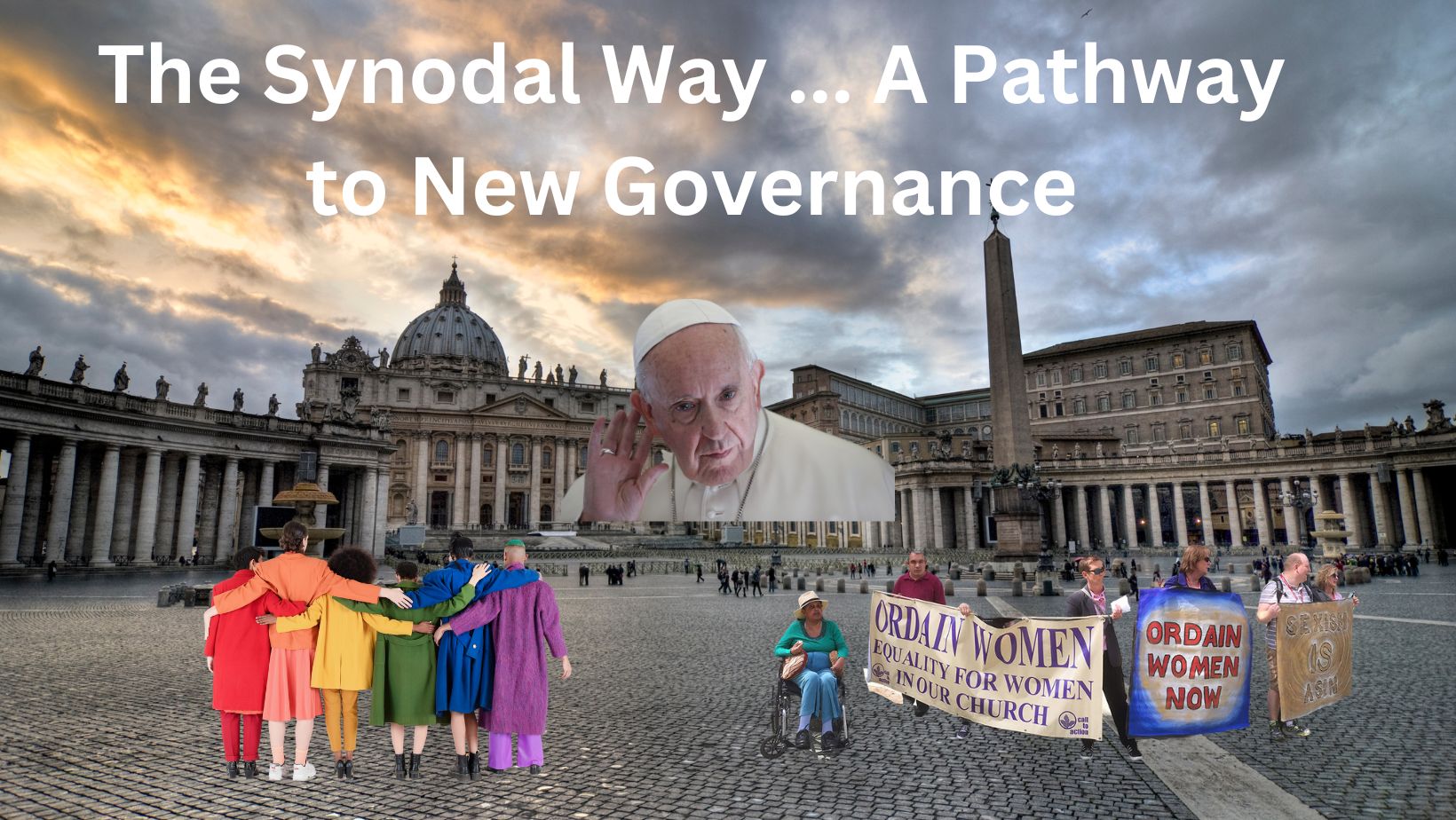
The final report (a 41 page synthesis) on the Synod on Synodality was issued Saturday, October 28.
The summary report covers topics such as the role of women and the laity, the ministry of bishops, priesthood and the diaconate, the importance of the poor and migrants, ecumenism, and clergy sexual abuse.
The summary report defines synodality as “the walk of Christians with Christ and toward the kingdom, together with all humanity; mission-oriented, it involves coming together in assembly at the different ecclesial levels of life, listening to one another, dialogue, communal discernment, consensus-building as an expression of Christ’s making himself present alive in the Spirit, and decision-making in differentiated co-responsibility” (p. 6).
It sounds to me as though the Vatican is attempting to redefine the Church’s decision process as one that is now “synodal” and therefore restructure how it operates moving forward. The most important takeaway from this newsletter is that the Synod on Synodality is redefining how the Church operates so that we no longer make decisions through our hierarchy but now through a synodal way.
The summary report is not a final document, but a starting point for ‘further reflection and dialogue at the local and continental levels’, leading up to the second session of the Synod on Synodality in 2024.
In summary, the report:
- Does not call for the ordination of women priests
- Asks for more theological and pastoral research on the possibility of ordaining women to the diaconate leading up to the second synod session in 2024
- Skirts the controversial issues of priestly celibacy, same sex blessings, gender confusion, stating further dialogue needed leading up to the second synod session in 2024
- Implies a process for evaluating bishops’ performance of their ministry
- Calls for a review for how bishops are selected
- Heavily emphasizes the need for ecumenism across religions
- Suggests more listening is needed of victims of clerical sex abuse (yet what concrete actions have been taken with Rupnik?)
- Calls for establishing of new lay ministries
- Increasing lay involvement in decision making
- Expanding the footprint of synodal assemblies
Notably, the final text did not include the term “LGBTQ+ people” after the phrase was included in the working document that guided assembly discussions. However, the summary report emphasized the assembly’s “closeness and support to all those who experience a condition of loneliness.”
Controversial issues such as gender confusion, LGBTQ people, divorced and remarried are all open questions, raising concerns about diminishment of the episcopacy’s charism for authoritatively teaching.
Perhaps the synod’s most significant proposals came in the form of calls for changes in ecclesial decision-making and the expansion of synodal assemblies and bodies in the life of the Church. The report called for continental assemblies to be canonically recognized and for the implementation of “the exercise of synodality” at regional, national, and continental levels. This expansion of the footprint of synodal assemblies now means that more people and more levels of the Church will be involved in the process of listening, dialogue, discernment, and most importantly decision-making. The report proposes that synodal assemblies should be held regularly at the local, national, continental, and universal levels, and that they should be more representative of the diversity of the Church. The report also suggests that synodal assemblies should be more open to the participation of non-Catholics, such as other Christians, people of other religions. The report says that expanding the footprint of synodal assemblies is a way of expressing the Church’s communion, mission, and participation in the world.
The entire concept of synodality is a Trojan horse that is used to introduce changes and innovations that undermine the authority of the Church, such as decentralization, democratization, dialogue with the world, and diversity of doctrines. Unfortunately, the synod silences voices of those who are faithful to the teachings of Holy Scripture and Tradition as well as those who have been victims of clerical sex abuse.
The good news is that there have been vocal bishops like Bishop Strickland and Cardinals Muller, Burke, Sarah, and Zen who have spoken out on the synod. Yes, there are those who wish to silence them, but the Truth cannot be silenced.
It is also clear from the votes during the final days, the assembly did not feel comfortable with affirming a decision in favor of ordained woman priests and the language referencing LGBTQ people. This is a small victory.
Yes some positive actions were taken. Some say it is reassuring the synod report remains silent on blessing same sex unions and defers the decision on female deacons. Many Catholic leaders believe this is a strategy … that this October session was merely to get people comfortable with the “synodal process.”
They are merely implementing what businesses have adopted for years. It’s called change management. To adapt followers to a difficult change, leadership must slowly convince them that these ideas are in their best interest or better yet – that it is their idea. This is how to achieve buy in. This is also a Marxist tactic … knowing that in the long run we the unknowing followers will adapt to the Marxist way of life. Let’s be vocal.
The real change to be aware of now is that the Church is slowly and methodically changing the way it governs itself through this “synodal way.” Now the laity (including non-Catholics and Catholics not in a state of grace) will get to decide and raise their hand and say “let’s allow same sex couples to be blessed” to be inclusive and it will be so. This is where we are going. It is just a matter of time because we are a listening Church.
